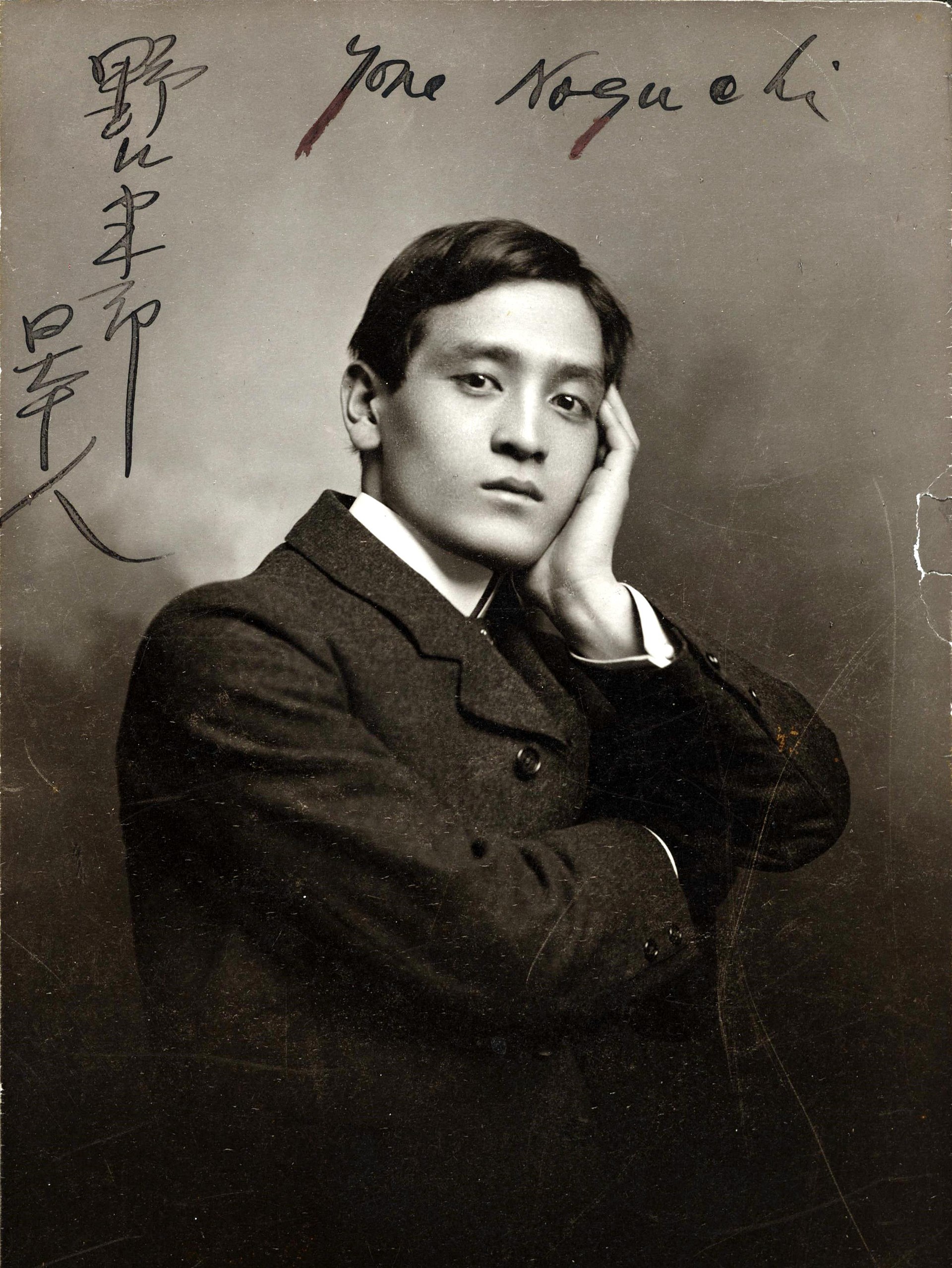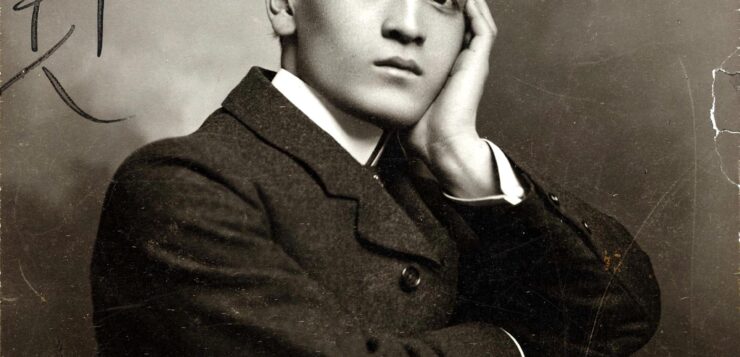SAN FRANCISCO BAY remained hidden to outsiders for centuries because its entrance is narrow, and from the perspective of a ship at sea even that small opening appears to be filled by Alcatraz, as though the small island in the middle of the bay had been deliberately positioned to trick the eye and make the coast appear unbroken. And then there is the fog that shrouds the jagged rocks and obscures the swirling currents. Through that narrow opening in 1893 sailed the steamship Belgic carrying a seventeen-year-old Japanese poet named Yone Noguchi, a young man who would prove every bit as confounding as the landscape he was entering. In navigating his way across the continent for the next decade, Noguchi would be resourceful, passionate, studious and elusive. To further his writing career he would depend on the kindness of strangers, many of them lesbians and gay men, for whom he played the role of the exotic and seductive cipher, performing their Orientalist fantasies in order to gain what he needed.
Noguchi arrived during the narrow window between the Chinese Exclusion Act of 1882 and the anti-Japanese laws of the 1910s and 1920s. Japanese immigrants were exempted from some of the worst expressions of anti-Asian hate during this period, but California could still be far from welcoming. On his first evening in San Francisco, Noguchi wandered up Market Street, entranced by the streetlights and the tall buildings, the din of traffic, and the clang of the cable car bells. “I was suddenly struck by a hard hand from behind,” he later wrote, “and found a large, red-faced fellow, somewhat smiling in scorn.” The man sneered, “Hello, Jap!” and spat in Noguchi’s face.

He quickly discovered that his English could not be understood. Although he had studied the language for several years, his Japanese teachers “had not given me the right pronunciation of even one word.” With this language handicap, his employment options were few. He found a position as a houseboy for a Jewish family living at the corner of Van Ness Avenue and Sacramento Street, only a few blocks from where Alice B. Toklas was then growing up at Van Ness and O’Farrell. Hungry to speak his own language, Noguchi frequented the editorial offices of Sōkō Shimbun, the city’s Japanese daily, at first delivering newspapers for them but eventually working as a translator.
William Benemann is the author of Unruly Desires: American Sailors and Homosexualities in the Age of Sail, and Men in Eden: William Drummond Stewart and Same-Sex Desire in the Rocky Mountain Fur Trade.







